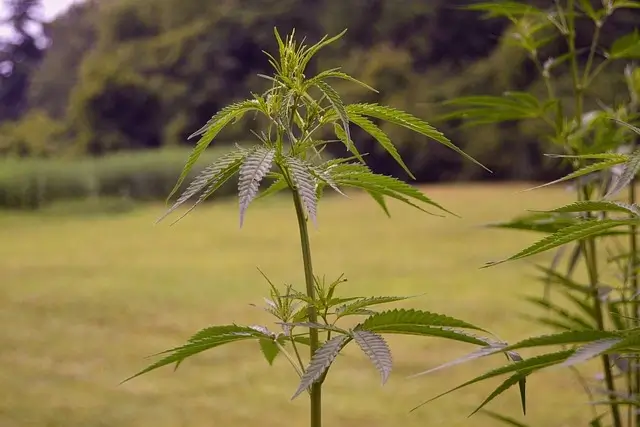Cannabidiol (CBD) and delta-9-tetrahydrocannabinol (THC) are the two main components present in the Cannabis plant. More than a hundred cannabinoids are found in a Cannabis plant, among which THC and CBD are the two prominent cannabinoids.
These compounds interact with our body’s endocannabinoid system but present different effects. They interact in our body with cannabinoid receptors to influence or treat various medical conditions of the human body. Mostly THC has psychoactive effects on the body but sometimes CBD also has psychoactive effects.
Both cannabis and hemp produce CBD and THC. The concentration of these compounds makes hemp and cannabis different. Cannabis also known as Marijuana has a higher concentration of THC. Hemp has a higher concentration of CBD. Cannabis Sativa plants having less than 0.3% THC are considered Industrial Hemp.
Where do they come from?
Both CBD and THC are naturally present in cannabis plants but their interaction with our body varies according to their components. Because different species of these plants contain different levels of cannabinoids.
Hemp is a specific variety of Cannabis Sativa plant which is referred to as industrial hemp. Sativa plant with low THC is used as industrial hemp. And plant containing the dominant version of CBD is used as medical cannabis.
Difference between CBD and THC
The major difference between hemp and cannabis plants is derived by the amount of THC present in them. CBD and THC both interact with the endocannabinoid system, but they have some notable differences. CBD lacks psychoactive effects, unlike THC. Thus, they both affect us differently to our body.
Differences in both the compounds can be stated based on these points:
Chemical Structure
CBD and THC both have the same chemical compounds as they share the same chemical formula (C21H30O2). The minor difference is the arrangement of atoms and counts. Another difference is the differing effects they execute on our bodies.
They affect us differently to our body due to their interaction with the receptors of our body. As we have above mentioned both CBD and THC have a connection with our endocannabinoid system.
The two main types of receptors in this system are CB1 and CB2. Cb1 is mainly found in our brain and central nervous system and Cb2 is mostly found in our immune system. Due to this THC contributes to making people high as it reacts with our Cb1 receptor.
Psychoactive properties
THC is the compound that is responsible for making you high. It is because of its binding with our Cb1 and Cb2 receptors. CBD is not attached to CB1 and CB2 receptors whereas THC has a direct connection with these receptors which are present in our brains. Because of this binding THC can make you high whereas CBD does not.
Legality
Hemp or CBD products are legal in some countries such as the US and some areas of India. Hemp-derived products containing CBD products are legal in some countries having the conditions of containing less than 0.3% of THC level. More than this level of THC is still illegal in any country.
Potential effects
A specific amount of THC can lead to serious reactions including panic attacks and psychosis. High doses may even lead to hospitalization. But on the other hand, CBD won’t lead to this kind of effect even after high intakes. High dosage of CBD mostly leads to sleepiness or nominal liver issues for some time.
Conclusion
CBD and THC both have various medical benefits. They both have several differences and side effects. However, the adverse effects of the compounds are in the case of higher intake or their interaction with other drugs. CBD and THC both have medical benefits.
It is important to note that the legality of CBD and THC products varies depending on the country or state you are in. In some places, THC is still illegal, while in others it may be used medically with a prescription or for recreational use.


Pingback: Cannabis and the Endocannabinoid System: Exploring Harmony
Pingback: Hemp vs. Marijuana: Understanding the Differences
Hello there, You have done an excellent job. I will definitey digg it and personally suggest to my friends.
I’m sure they wkll be benefited frim this site.